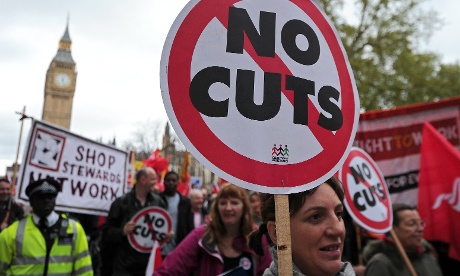Wiki describe Neoliberalism as “a label for Economic liberalism, advocates of which support economic liberalization, free trade and open markets, privatization, deregulation, and decreasing the size of the public sector while increasing the role of the private sector in modern society.”
But what does that mean to the average man and woman on the street?
There are flaws with every economic theory and this is undoubtedly true for Neo-Liberalism. Neoliberalism promotes the amalgamation of the state and big business. It calls for unregulated and unbridled capitalism.
They believe that a nations assets (ie energy, water etc) should belong to private businesses and that citizens of that nation should pay those private business to be able to gain access to the assets of the county.
By selling off essential (and profitable) public services to private firms it results in the state’s well-being being relied to the fortunes of the businesses concerned.

The Big Six Energy companies profit immensely from the hardship of the poor and vulnerable.
Neo-liberalists believe that the market knows best. They believe that there should be as little Government regulation as possible. One of the main reasons for the credit crunch in 2007 was that the banks in the UK were deregulated. Due to the lack of regulation, they embarked on a spree of reckless borrowing, which ultimately, the taxpayers had to pay for via bank bail outs, quantitive easing and a drastically increased national debt.
This was Neo-Liberalism in action
This was Neo-Liberalism in action
“Neo-liberalism is a one size fits all version of uber-capitalism which rips apart hundreds of years of progression in the name of profit.”
A prime example of the failings of neo-liberalism can be seen by the ‘austere’ policies of the Tory-led Government in Westminster. The Government’s zeal for public sector cuts while reducing the rights of workers shows clearly than the needs and wants of the business community take precedence over the wants and needs of the electorate.

Public Sector Cuts are Neo-Liberalism in action.
Another good example of Neo-Liberalism in action is the proposed sell off of the Royal Mail. Neo-Liberal politics often ignores the strength of public feeling. It will ride roughshod over democratic process.
We, the ‘owners’ of Royal Mail, have not been asked if it should be sold or not. That un-mandated decision was made by the coalition Government. But we are not privatising all of Royal Mail.

Even the staunchly pro-Tory Daily Mail expressed shock and dismay at the sell off of Royal Mail
According to the BBC news website: ‘Royal Mail pension fund assets and liabilities are set to be transferred to the government next month, subject to EU approval, the BBC understands.”
By nationalising the Royal Mail pension fund, the government gets access to £28 billion of tangible financial assets. But the liabilities of the Royal Mail pension fund are almost £10 billion greater than the assets.
And it will be the taxpayer who will bear the brunt of the shortfall of £10 billion..
Again, this is Neo-Liberalisation in action.
No comments:
Post a Comment